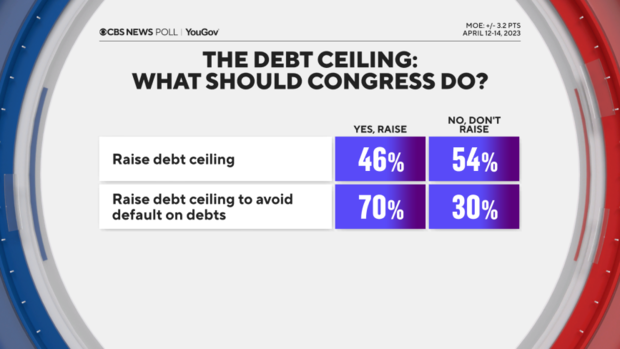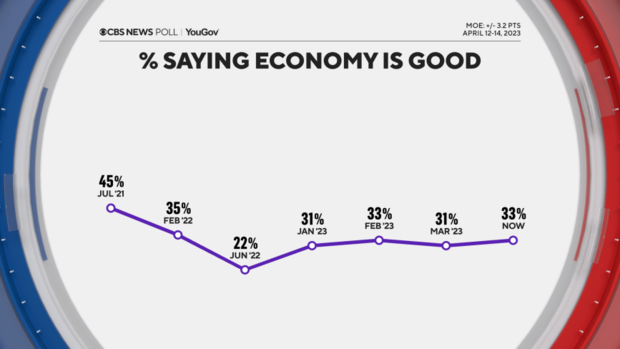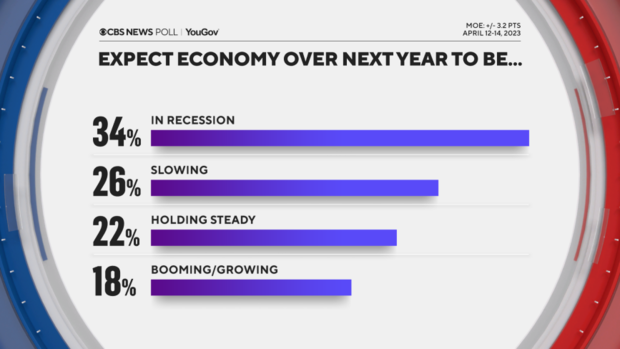As Congress negotiates on federal spending with a possible debt limit crisis looming, 70% of Americans support raising the debt ceiling, if it means the U.S. would default without doing so. These figures are roughly the same as they were this past winter.
It comes as ratings of the national economy remain mired in the low 30s, as they have been for some time.
But that doesn’t mean people necessarily want the government to have more borrowing power — as much as they want to avoid default. Here’s how that works.
When initially asked about raising the debt ceiling — defined as the limit on what the government can borrow to pay its current debts — a narrow majority oppose raising that limit. This is driven by Republicans and independents, including both self-described moderates and conservatives.
But when asked what they would support if the U.S. would end up defaulting on its current debt, many change their mind. In this case, seven in 10 Americans favor raising the ceiling to let the U.S. pay its debts.
As was the case in February, Republicans, Democrats and independents all shift substantially when presented with the prospect of default. Majorities in each group would support raising the ceiling in this case.
It’s also an insight into how people process information on complicated economic matters, and the potential implications of preferences expressed in surveys.
To get there, though, there is little appetite for spending cuts, at least not to major programs.
Most Americans would prefer to see spending on Social Security, as well as Medicare and Medicaid, increased as part of congressional budget negotiations. This includes seven in 10 Democrats, and interestingly, most independents and Republicans as well — it’s six in 10 of them on Social Security and slightly narrower majorities on Medicare and Medicaid.
Fewer support increased defense and military spending — about four in 10 nationwide — but they still outnumber those who want cuts.
Looking at the condition of the national economy overall, most Americans continue to have negative views — largely unchanged from the beginning of the year — and most continue to expect the economy to slow or be in recession over the next year.
This CBS News/YouGov survey was conducted with a nationally representative sample of 2,065 U.S. adult residents interviewed between April 12-14, 2023. The sample was weighted according to gender, age, race, and education based on the U.S. Census American Community Survey and Current Population Survey, as well as the 2020 presidential vote. The margin of error is ±3.2 points.





